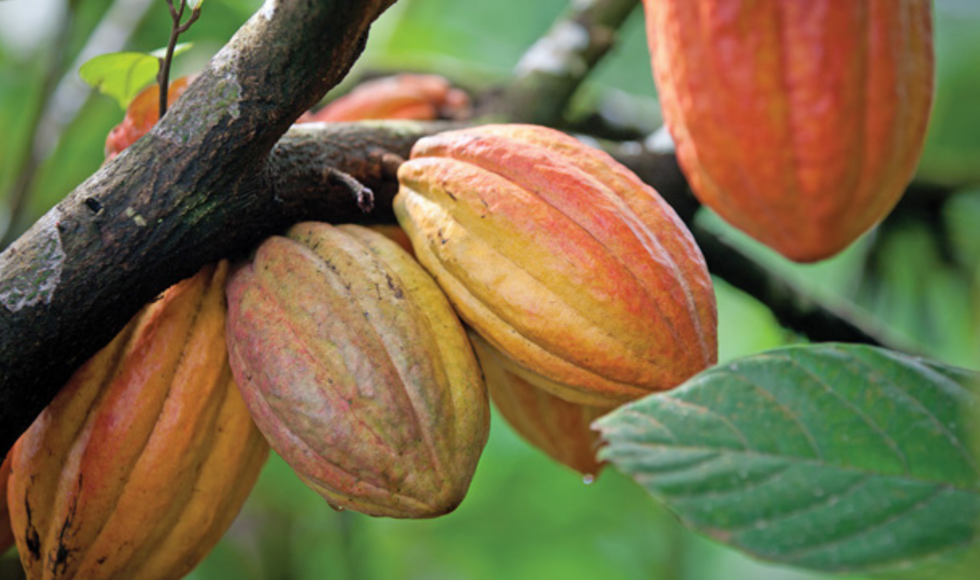The EU Regulation on Deforestation-free Products to reduce EU consumption impacts
Between 2000 and 2018, 90% of total deforestation worldwide was caused by agricultural land expansion, and EU consumption is responsible for 18%, respectively. As a result, the EU commission proposed a new deforestation regulation that will deny EU market access to imported cattle, cocoa, coffee, palm oil, soy, wood, rubber, charcoal and printed paper products produced on land deforested after 31 of December 2020. Europe is the largest importer of cocoa beans worldwide, with 56% of global imports, followed by Asia and America.
The state of cocoa-driven deforestation in Cote d’Ivoire
Côte D’Ivoire produces most of the world’s cocoa.The country exports 2 million tons of every year, and around 40% head to the European market. Since the Cocoa and Forests Initiative (CFI) was signed five years ago, deforestation from cocoa expansion has decreased from 25% of total deforestation in 2018 to only 4% in 2023. A big step forward!
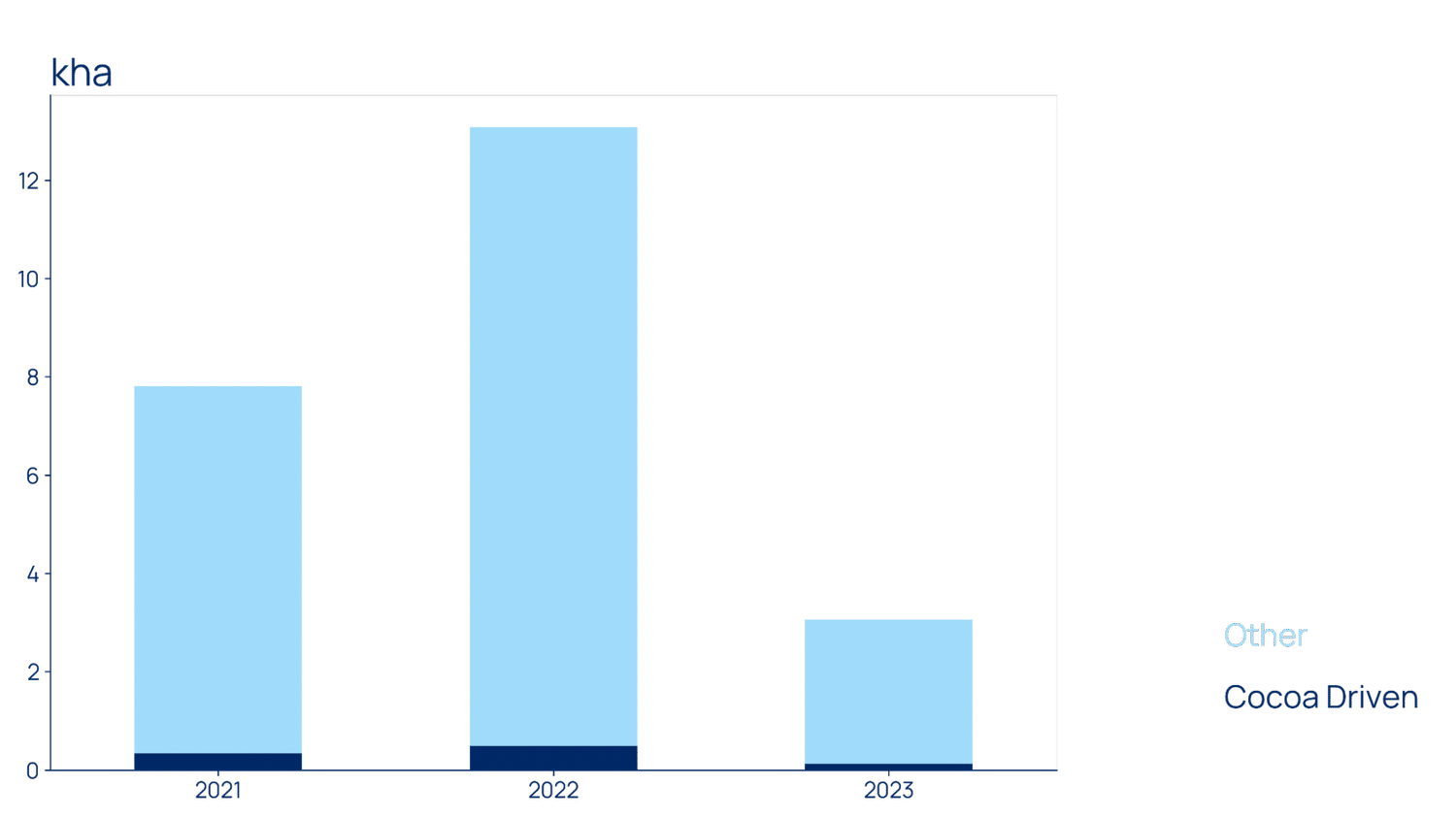
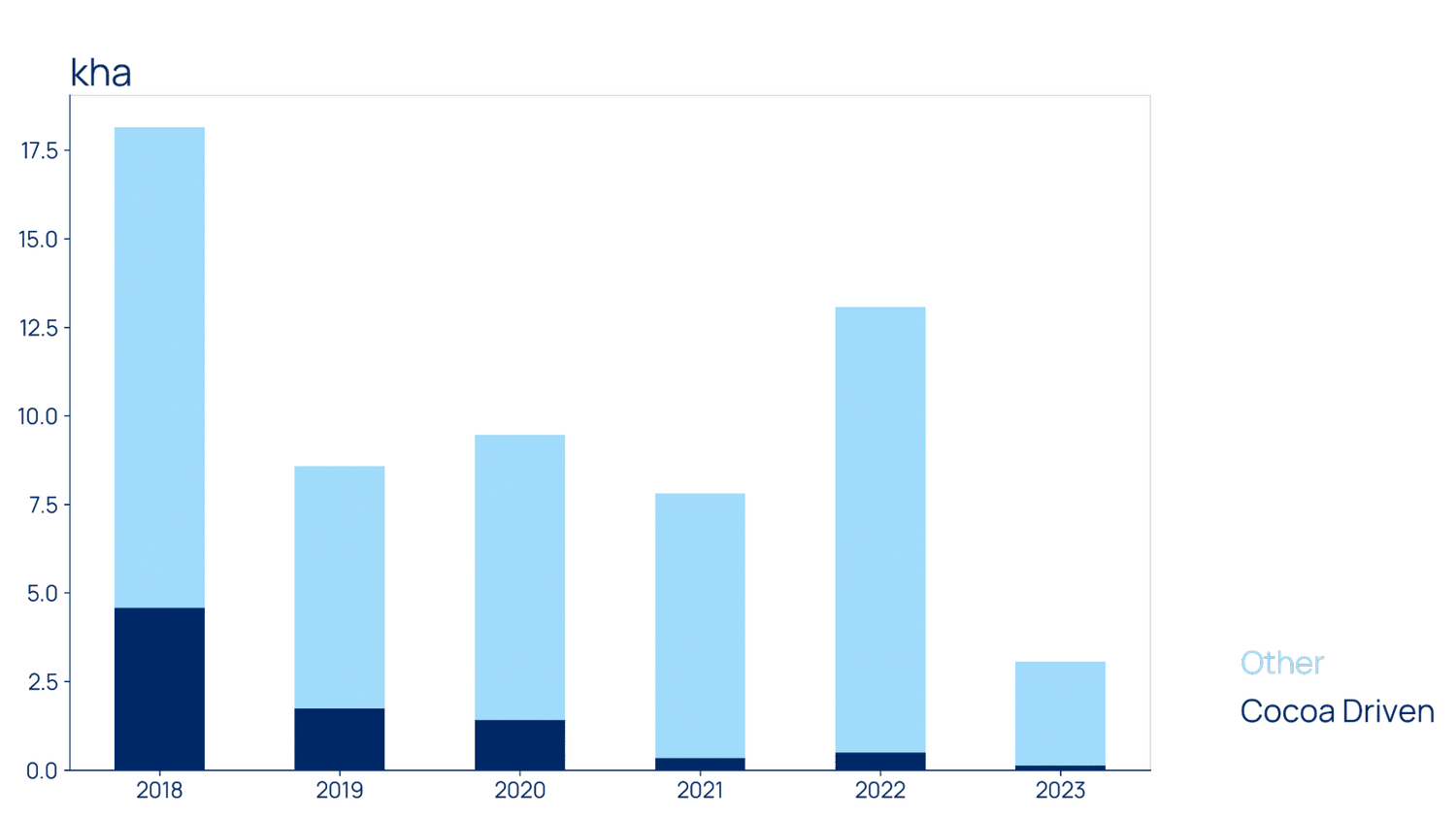
The graph above shows a dramatic decline in cocoa-driven deforestation in Côte D’Ivoire between 2018 and August 2023. The cocoa-driven deforestation was 4,576 ha in 2018, while in 2023, we’ve only seen 129ha deforested so far.
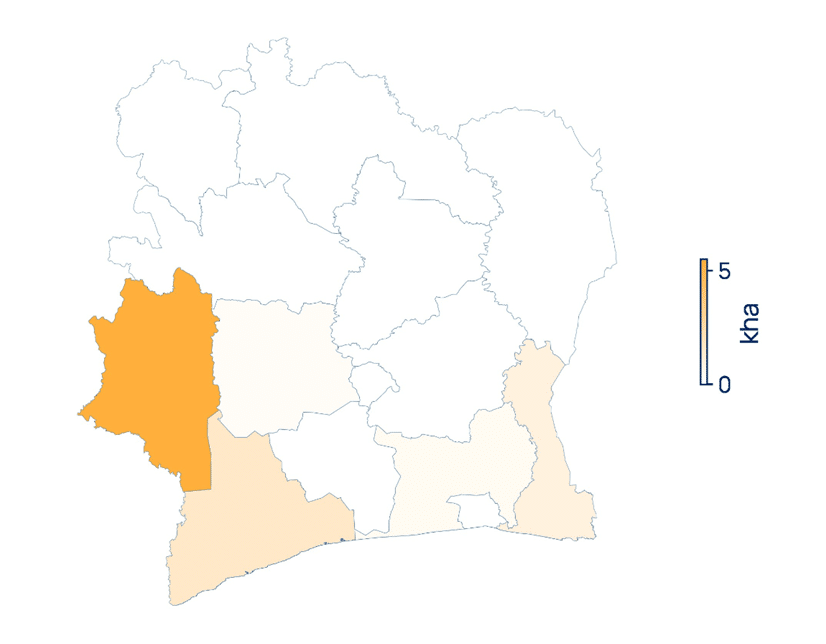
The map above shows the subnational regions in Côte d’Ivoire where the majority of cocoa-driven deforestation has occurred since 2018. In the region of Montagnes we can observe that more than 5,000 ha of forest have been deforested between 2018 and 2023, followed by Bas-Sassandra with 1,500 ha.
As the largest cocoa producer in the world it is crucial for Côte d’Ivoire to protect the livelihoods of its cocoa stakeholders (processors, traders, manufacturers, cooperatives, and certification bodies) by continuing efforts to reduce deforestation. Maintaining market access to the EU through EUDR compliance should be a priority.
How to prepare the Cocoa industry for EUDR Due Diligence
In order to reduce its impact on global deforestation the EU has outlined a due diligence process for companies. The EU will attribute a level of risk to each country or subnational area that will determine what type of information companies will be required to collect.
Under the EUDR, Companies will need to decide how they will comply with these new requirements and limit the disruption to their business activities.The regulation has three due diligence components for companies to carry out:
- Collect information: Companies will gather information, documents, and data on their products including geolocation of plots (farms) and verifiable information that products are deforestation-free.
- Risk assessment: Each company needs to conduct a risk assessment of its supply chain and evaluate elements of risk including the presence of forests and the amount of deforestation and forest degradation.
- Risk mitigation: For areas identified to have a real risk of non-compliance a company must adopt measures to reduce the areas of risk, and this may include gathering additional data or information. Operators must put in place policies, controls and procedures to mitigate and manage non-compliance risks.
Satelligence has the answers
The good news is that Satelligence has solutions for compliance with the EUDR’s due diligence requirements. We help provide geolocation data for crops and plots, measure historical deforestation and run deforestation risk assessments across multiple supply chains. Our deforestation monitoring platform provides supply chain insights to help companies manage sourcing risks and engage with suppliers.
1. Collect Information – We’ve compiled the most comprehensive cocoa farm dataset on the market with over 500,000 farms by mapping cocoa across West Africa at farm-level detail. Satelligence identifies which of those farms are currently compliant with EUDR with our customized forest baseline.
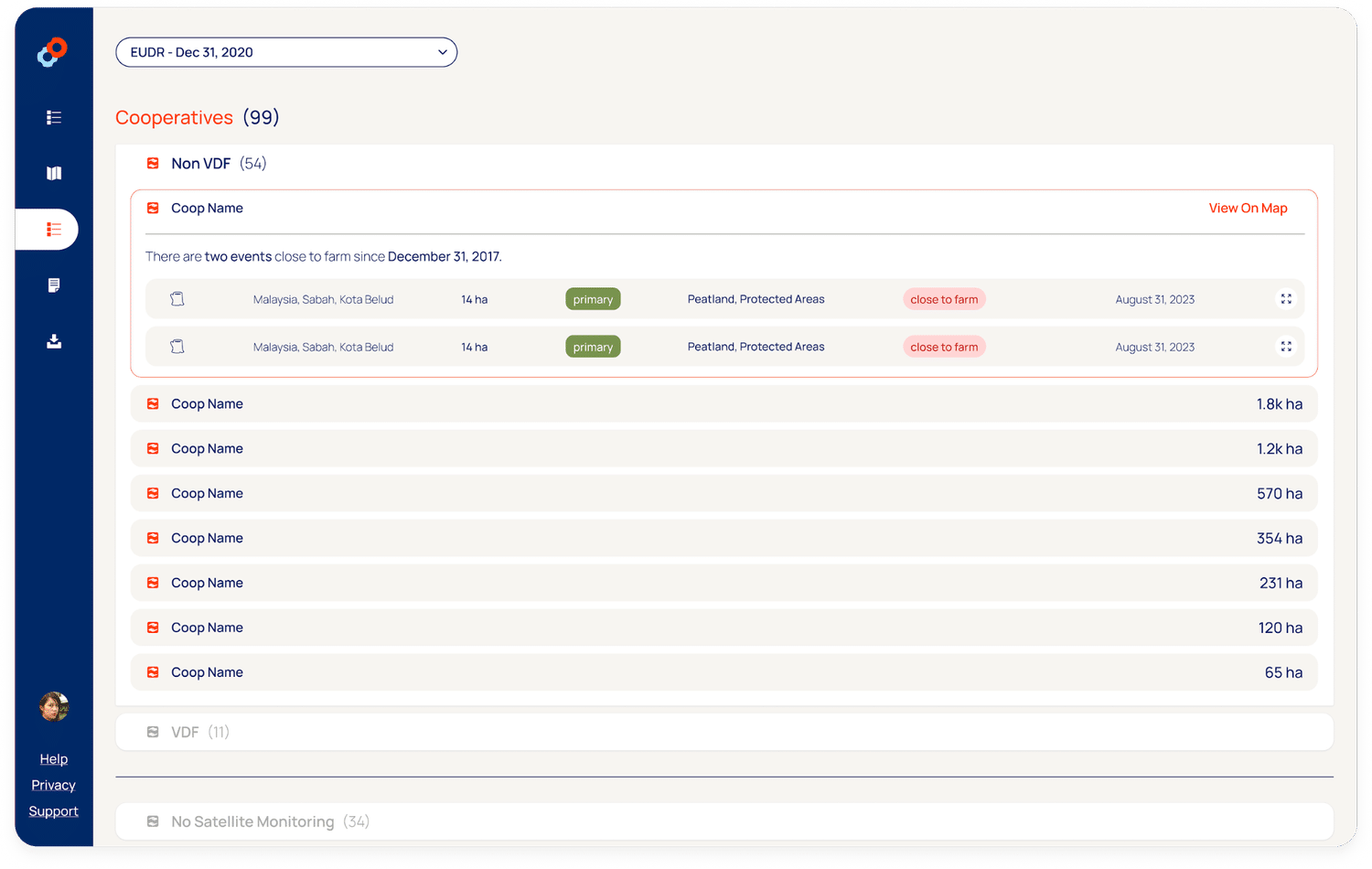
2. Risk Assessment – We assess the risk of deforestation at both farm level and landscape level, which allows companies to effectively address this risk across cocoa and other commodity supply chains. Our methods can be applied anywhere in the world and used to identify where to focus on reducing deforestation risk with individual suppliers and cooperatives.
3. Risk Mitigation – We provide highly accurate, near real-time deforestation alerts that are tailored to our forest baseline and national forest definitions. Our monitoring provides alerts in high risk areas which enables companies to take quick action on instances of non-compliance. Our grievance procedure formulates data-driven responses to concerns raised by NGOs.
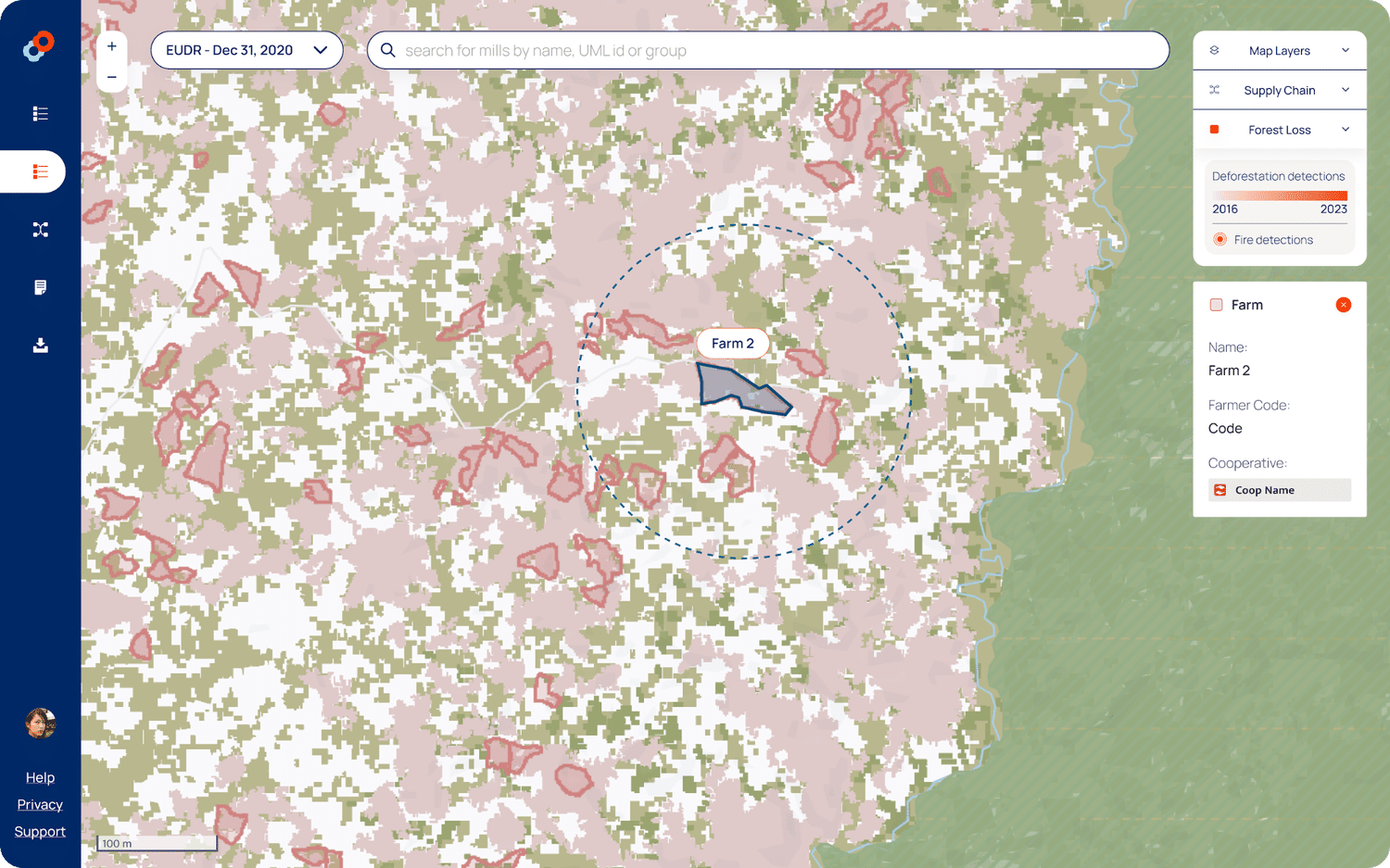
Next steps for EUDR readiness
The EU deforestation regulation is here and cocoa supply chain actors will have to get ready with evaluations of the extent of traceability and jurisdictional risk assessments. Find a trusted service provider that has extensive experience in cocoa, like Satelligence, to help you with setting up your due diligence system. Our quality of data, proprietary methods, and excellent customer success team will help you navigate this new regulatory landscape. Cote d’Ivoire is already well positioned to safeguard its forests, continue to lead in cocoa production, and with the help of our technology this sustainable future is even more certain.
